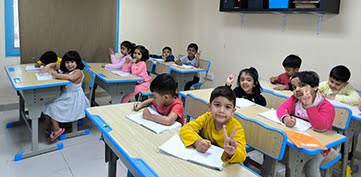Choosing the perfect preschool for your child is one of the first major decisions you will make in their educational journey. The preschool years are critical for your child’s development, as they will build the foundation for future learning, foster social interactions, and help in their emotional growth. Finding the right preschool can be a daunting task with many factors to consider, but with careful planning and research, you can choose to suit your child’s needs and your family’s values. Here’s a comprehensive guide to help you navigate this important decision.
Understanding Your Child’s Needs
Every child is unique, and the preschool environment should cater to your child’s specific needs. Does your child thrive in structured settings or prefer a more flexible, play-based approach? Some children may require more one-on-one attention, while others might be more independent.
Reflect on your child’s personality, learning style, and developmental milestones. For example, a shy child may benefit from a smaller class size to build confidence, while a more outgoing child might enjoy a larger, busier environment.
It’s also essential to consider your child’s strengths and areas for improvement. If language development is a priority, look for a preschool in Musaffah that emphasises communication and literacy. If your child is curious and active, preschools that emphasise exploration and physical activity might be a better fit.
Researching Different Preschool Philosophies
Preschools often follow specific educational philosophies, and choosing one that aligns with your values and parenting style is important. Here are a few common approaches:
- Montessori: Focuses on self-directed learning, where children choose activities that interest them and learn at their own pace. Montessori classrooms encourage independence and hands-on learning.
- Reggio Emilia: This approach emphasises creativity and collaboration. Children learn through exploration and project-based work, often guided by their own curiosity and interests.
- Waldorf Education: focuses on nurturing a child’s imagination and creativity through play, storytelling, and artistic activities. It also strongly emphasises nature and community involvement.
- Play-Based Learning: Many preschools prioritise learning through play, allowing children to develop social, emotional, and cognitive skills in a more informal and flexible environment.
Understanding these philosophies will help you choose a preschool that fits your child’s learning style and your educational preferences.
Assessing Location and Schedule
Location and convenience are key factors to consider. A preschool that is close to home or the work place can make drop-offs and pick-ups much easier, saving time and reducing stress.
Additionally, think about the preschool’s schedule. Do they offer part-time or full-time options? Some preschools may have flexible hours, while others might have fixed schedules. Make sure the preschool’s hours align with your family’s needs and lifestyle. It’s also important for working parents to check if the preschool offers aftercare services or extended hours.
Evaluating Teacher Credentials and Class Size
Teachers play a crucial role in shaping your child’s early experiences. It is important to look for a preschool with qualified, experienced, and caring educators. When visiting preschools, ask about the teachers’ credentials, training, and professional development opportunities.
Class size and student-to-teacher ratios are also critical. A smaller class size often means more individualised attention and stronger relationships between teachers and students.
Visit the Preschool and Observing the Environment
Visiting potential preschools in person is one of the best ways to get a feel for the environment and culture. Pay attention to how the teachers interact with the children—are they patient, engaged, and encouraging? Observe how the children behave and interact with each other. Are they happy, confident, and actively participating in activities?
Check out the classroom setup and learning materials. A good preschool should have a variety of age-appropriate educational toys, books, and resources that foster creativity, problem-solving, and social interaction. Look for cleanliness, safety measures, and the overall atmosphere of the space. Does it feel warm and welcoming? Does it encourage exploration and discovery?
Considering the School’s Curriculum and Parent Involvement
A strong preschool curriculum should balance academic learning with play, exploration, and social development. Ask the preschool how they structure their day—are there opportunities for children to engage in arts, music, outdoor play, and physical activity alongside academic work?
It’s also important to inquire about how the school communicates with parents. Does the preschool encourage parental involvement through events, meetings, or progress reports? A preschool that values parent-teacher collaboration can provide better support for your child’s development.
Trust Your Instincts
Finally, trust your instincts. You know your child better than anyone, and your gut feeling about a preschool is often an important indicator. If something doesn’t feel right, it’s okay to keep looking. It’s worth taking the time to find a preschool where both you and your child feel comfortable and confident.
Conclusion
Choosing the perfect preschool requires thoughtful consideration, research, and, most importantly, a focus on your child’s unique needs and personality. By exploring different educational philosophies, assessing practical factors like location and class size, and visiting potential preschools in person, you’ll be able to make an informed decision. Remember, the goal is to find a nurturing and stimulating environment that will support your child’s growth, learning, and happiness during these important and formative early years.




